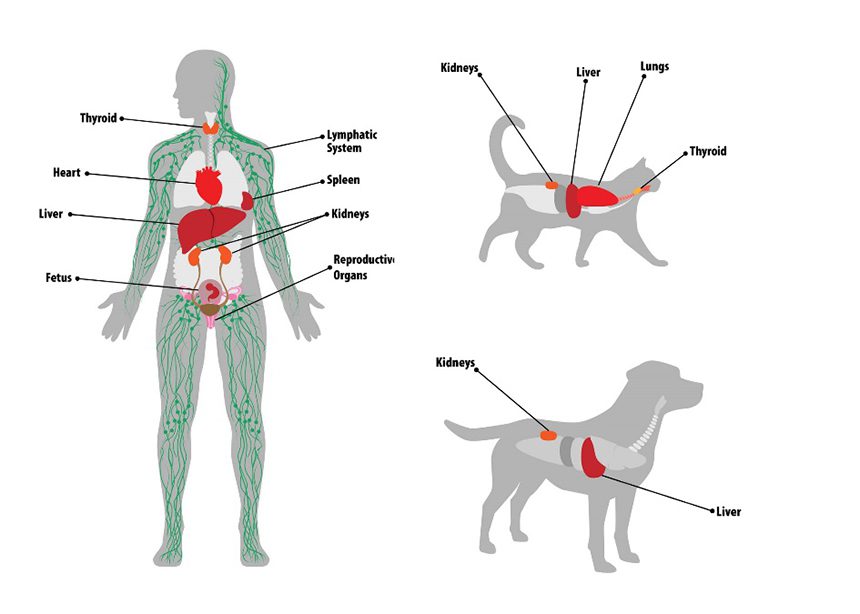PFAS have been studied for over 50 years. But scientists are still learning about all the health effects. By studying laboratory animals and people with known exposures to PFAS, scientists have been able to link PFAS exposures to:
- increased cholesterol,
- decreased vaccine response in children,
- changes in liver enzymes,
- increased risk of high blood pressure in pregnant women,
- smaller birth weights, and
- some cancers.

Though there have been only a few studies looking at PFAS contamination and pets, it appears that dogs and cats may have similar health effects. PFAS exposure has affected the kidneys and liver of dogs3 and may be linked to hyperthyroidism in cats4.
3. You D, Chang X, Guo L, et al. Per- and polyfluoroalkyl substances (PFASs) in the blood of police and Beagle dogs from Harbin, China: Concentrations and associations with hematological parameters. Chemosphere. 2022/07/01/ 2022;299:134367. doi:https://doi.org/10.1016/j.chemosphere.2022.134367
4. Wang M, Guo W, Gardner S, Petreas M, Park JS. Per- and polyfluoroalkyl substances in Northern California cats: Temporal comparison and a possible link to cat hyperthyroidism. Environ Toxicol Chem. Oct 2018;37(10):2523-2529. doi:10.1002/etc.4239
